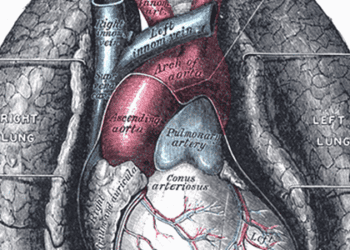ACGME duty hour rules in residency did not change residents’ reported hours of sleep
Image: CC/Earls.
Key study points:
1. Implementation of ACGME duty hour rules for residents did not change the reported hours of sleep between 2003 and 2009 (34.6 vs. 33.7 hours/week)
2. Number of hours worked per week, perception of fatigue, and overall satisfaction with the residency education also decreased after the implementation of work hour restriction
Primer: The Accreditation Council for Graduate Medical Education (ACGME) implemented in 2003 duty hour limits that required residency programs to limit the number of weekly hours each resident was allowed to work. This change was implemented out of concern for quality, particularly due to resident fatigue and limited sleep. Prior to the introduction of the duty hour limits, residents were known for often working more than 100 hours per week. Critics argued that limiting resident hours would restrict their experiences and not prepare them as well for becoming independent physicians. Critics also worried about the possible increase in pass-offs and their potential impact on health care delivery quality and patient safety. However, with only a few years since its passing, the long-term effects of these changes are still to be determined. This study focused on some of the take-aways from current data.
Background reading:
This [prospective] study: All residents in the Orthopedic Combined Residency Program affiliated with Harvard Medical School were surveyed twice a year between 2003 and 2009, with 216 responses (69%) collected. Work hours per week dropped from 74.46 in 2003 to 66.24 in 2009. In addition, a higher percentage of residents had at least 10 hours between shifts in 2009, and the overall hours off between shifts also increased. Reported hours of sleep did not change throughout the years, but perception of fatigue did decrease. Although the spectrum of experiences didn’t change, the perceived quantity of sufficient educational experiences during residency did decrease. Finally, the residents’ sense of clinical preparedness also dropped. On a 1 to 4 scale, with 4 being very well prepared, scores dropped from 3.74 in 2003 to 3.52 from 2004-2009.
In sum: This study highlights some of the impacts of the ACGME duty hour restrictions on resident education in the Orthopedic Combined Residency Program in major Boston hospitals. Although it shows that work hours did decrease, it sheds light on some of the concerning effects of the work hour restrictions, including a decrease in perception of clinical preparedness and a decrease in the quantity of experiences. Despite not showing any difference in the reported hours of sleep each week, the residents did perceive their fatigue to be less than before. This study plays an important role in the understanding of both the intended and unintended consequences of the ACGME duty hour restriction rule adoption, and provides useful data through which we may consider future residency education changes. A limitation of this study is that it is narrow in its resident selection, focusing on Harvard hospitals and only surveying residents in orthopedic surgery, which may have responded differently to these questions than residents in other specialties.
Click to read the study in [Annals of Surgery]
By [DM] and [AH]
© 2012 2minutemedicine.com. All rights reserved. No works may be reproduced without written consent from 2minutemedicine.com. DISCLAIMER: Posts are not medical advice and are not intended as such. Please see a healthcare professional if you seek medical advice.




